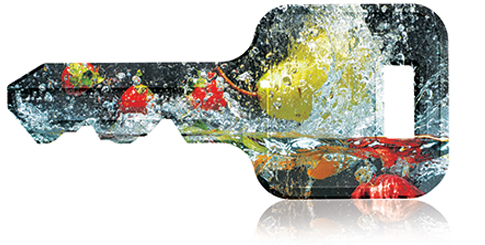Maintaining Records
Although some may not view it as a critical factor in the FSVP process, records maintenance is a key component to compliance. Importers are required to maintain all FSVP records, in English, for each imported product and supplier, covering all of the aforementioned stages and activities. The difficulty, relates Dr. McEntire, is “keeping track of all the information, especially if the importer sources many different products from many trading partners.”
All records related to FSVP must be maintained for at least two years. Offsite storage of records is permissible, if the documentation can be provided onsite within 24 hours of an FDA request for official review. One plus is that it’s not necessary for importers to duplicate existing records complying with other federal, state, or local regulations—as long as the records contain the information required by the final rule.
Some Good News: VQIP
Importers with a history of at least three years can apply for the forthcoming Voluntary Qualified Importer Program (VQIP) beginning in January 2018 for the October 1, 2018 to September 30, 2019 period.
This voluntary, fee-based program is designed to expedite the review and importation of foods—a process of particular benefit to fresh produce importers. It will ensure faster entry into the United States, including limited FDA sampling and expedited analysis of audit samples.
To qualify, importers must develop and maintain a Quality Assurance Program that demonstrates “a high level of control over the safety and security of their supply chains.” Fresh produce must come from farms certified as safe under the FDA’s accredited third-party audit program, and VQIP applications can be renewed annually.
Critics say VQIP is too costly for smaller importers and places additional burdensome requirements and paperwork onto those already mandated by FSVP. Houston attorney Steven L. Varnis agrees, finding “VQIP will be a benefit only to large entities.” Further, he says the program requires a great deal of advanced planning to meet its requirements.
Some Bad News
In September 2016, the FDA reported that only 45 percent of small and mid-sized importers and 48 percent of large importers who participated in a self-assessment were ready for FSVP and its documentation.
According to the FDA, identified program challenges included “educating foreign suppliers, combating misinformation, working with documents in different languages [and] having to overcome language barriers.” For smaller companies, being “under-resourced and unable to dedicate complete resources to fulfilling the requirements of FSVP” loomed larger.
As a result, Gilliland believes importers “are going to take a good look at who they’re buying from” and could end up switching business partners to deal with “more established companies to supply their product.”



